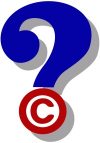Dear Doc:
What’s the difference between an “Intellectual Property Attorney” and a “Patent Attorney”?
Signed,
Thinking of Applying
Dear Thinker:
You may not know it, but the Doc is BOTH! Under the Patent Law (37 U.S.C. §11.5), a person who wishes to represent others before the United States Patent and Trademark Office (USPTO) in patent matters (a “Patent Attorney”) must possess certain technical qualifications, and must take and pass a really difficult registration examination (colloquially called the “Patent Bar Exam”). The needed qualifications are a university degree in science or engineering; sufficient university coursework in science or engineering; or sufficient practical experience in science or engineering. Then, and only then, may an attorney call him or herself a “Registered Patent Attorney” (which is one of only two historically-recognized specialties in US law, the other being a Proctor in Admiralty.) Non-attorneys may also take the exam, and once they pass, they are known as “Patent Agents” and may represent clients in the USPTO, but are not allowed to do other legal work such as going to court.
In the past, the USPTO only accepted engineering, physics and chemistry degrees and lab courses, and had strict limits on what it would accept as sufficient coursework and experience. This excluded a great many technical fields including biology, biochemistry, neuroscience, genetics, and so forth.
In the past month, the folks at the USPTO in the “Office of Enrollment and Discipline” (and no, to the Doc’s knowledge, they do NOT have a dungeon, and rarely, if ever, wear leather) have expanded the acceptable categories of technical qualification needed to sit for the exam. Newly added fields include degrees in aerospace engineering, bioengineering, biological science, biophysics, electronics engineering, genetic engineering, genetics, marine engineering, materials engineering, materials science, neuroscience, ocean engineering, and textile engineering. They’ve also added Master’s degrees and Ph.D.s, and made a few other changes to recognize that not everyone proceeds straight through school from Freshperson year to a terminal degree.
The USPTO publishes a roster of all registered practitioners and hosts a searchable database of all active practitioners.
As for that whole “Intellectual Property Attorney” thing…any lawyer who deals with patents outside work with the USPTO (litigation, licenses, etc.) as well as trademarks, copyrights, trade secrets, designs, and the like may describe herself as such. So…a Registered Patent Attorney is an Intellectual Property Attorney, but the converse may not be true. To know the difference, ask the attorney for his or her “USPTO Registration Number” – the Doc’s is 31,374, and he’s darn proud of that!
Need a patent lawyer, or even an intellectual property one? Give the folks at LW&H a call. They’ve got both, and cover the waterfront.
Until next month,
The “Doc”
— Lawrence Husick, Esq.


